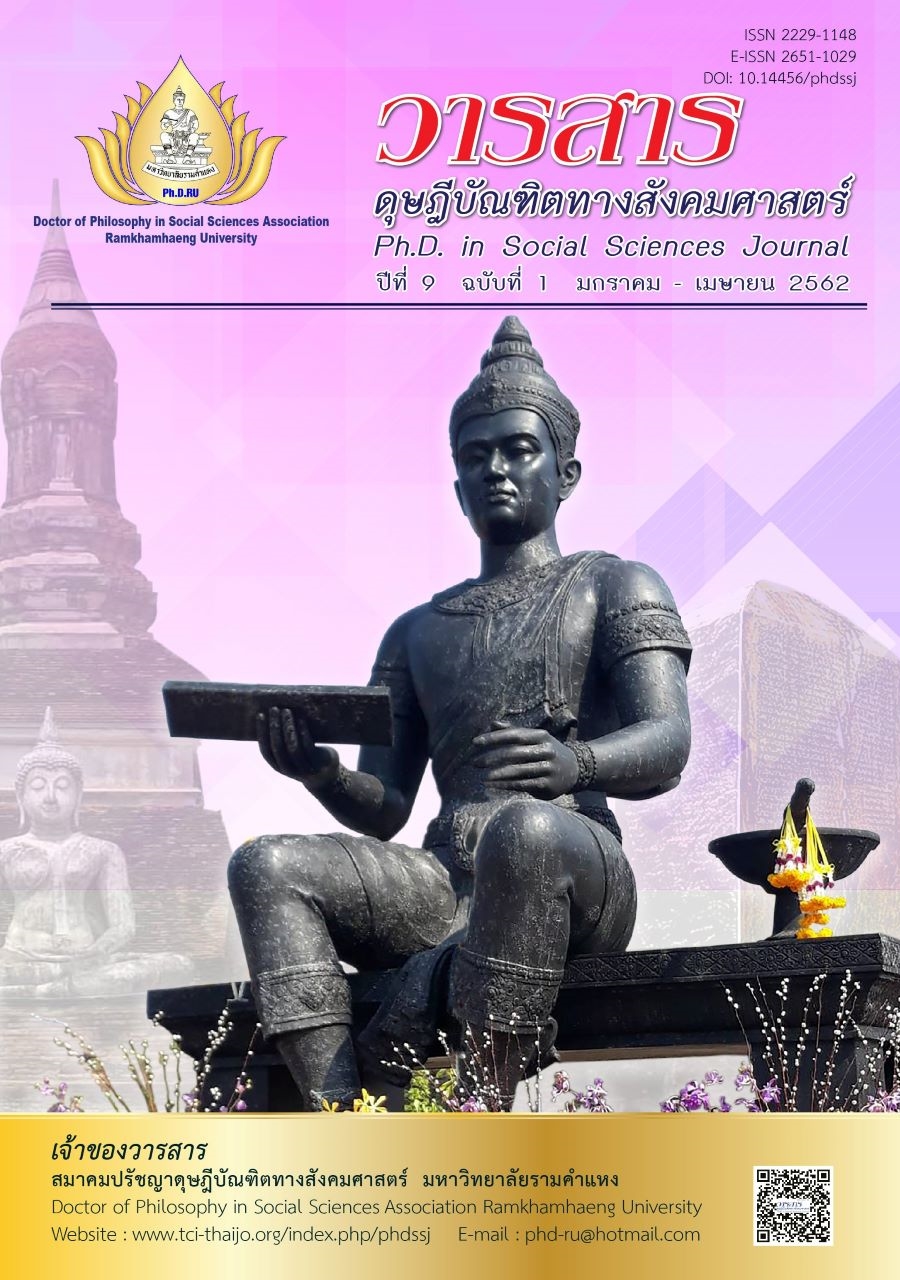Community Right the Management of Natural Resources and Environment Maintenance in a Balanced and Sustainable: Study the Appropriateness of Applying the Theory of Elinor Ostrom in Thailand
Main Article Content
Abstract
The study of “Community Rights in Sustainable and Balancing Natural Resources and Environmental Management: Study of the Suitability in Using Elinor Ostrom’s Theory in Thailand,” In the problem whether the use and interpretation of the law recognize the status of “community” as a legal person and also what the legal nature of the “community rights” is. As well as the conflicts of thought in the management and utilization of natural resources and the environment between the state and the people or the community.
The study indicated that When considering a community as a social unit that is acquired by reality, it is a physical fact. As such, it is not required to be legally recognized because of its identity is generally recognized, whether or not incorporated as a corporate entity. This idea corresponds to Otto Von Gierke’s Organic Theory, as well as the use and interpretation of the law to guarantee the status of “community rights” in the management and utilization of natural resources and the environment under the Constitution, which is a constitutional privilege over the property of the common citizens. The community has the right to manage and use the natural resources and environment under the balanced and sustainable conditions.
Article Details
Academic articles, research articles, and book reviews in the Ph.D. in Social Sciences Journal are author’s opinions, and not the publisher’s, and is not the responsibility of the Ph.D. in Social Sciences Journal Philosophy Association, Ramkhamhaeng University. (In the case that research is done on human, the researcher has to be trained in Ethics for Doing Research on Human Training and has to produce the evidence of the training).
References
Chua-Thai, S. (2015). Introduction to philosophy of law (18th ed.). Bangkok: Winyuchon. [In Thai]
Ganjanapan, A., & Others. (2000). Community dynamics in resource management paradigm and policy. Bangkok: The Thailand Research Fund. [In Thai]
Hardin, G. (1963). The tragedy of the commons. Science New Series, 162(3859), 1243-1248. [In Thai]
Khosananan, C. (2002). Human rights without frontiers: Philosophy, law and social reality. Bangkok: Nititham. [In Thai]
Ostrom, E. (1990). Governing the commons: The evolution of institutions for collective action. Combridge, England: Cambridge University Press.
Prokati, K. (2007). Report of the research subject the rights of people Who are combined into the communities. Bangkok: Office of the Constitutional Court. [In Thai]
Prokati, K. (2013). Meeting report of the subcommittee of community right law reform No.1/2556. Nonthaburi: Office of the Legal Reform Commission Nonthaburi. [In Thai]
Saeng-Uthai, Y. (2016). Fundamental knowledge of general law (20th ed.). Bangkok: Thammasat Universit Press. [In Thai]


